Discover Lyon – The second biggest city in France
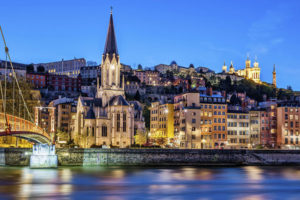
Lyon is regarded as the gastronomic capital of France. As well as food, with over 2,000 years of history embedded into its streets and its very soul, Lyon has a fascinating history to discover.
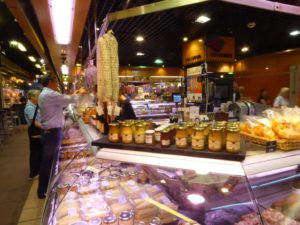
When one of the luminaries of French cuisine, the great Lyonnais chef Paul Bocuse died recently, the whole country was plunged into mourning for this national, indeed international treasure.
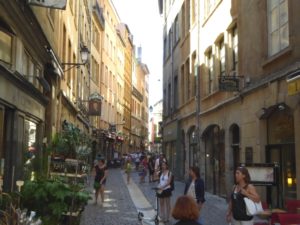
A good area to start your exploration is the Presqu’ile, the neck of land between the two rivers, that has been classified by UNESCO as a World Heritage Site. You’ll be meandering your way back through the numerous ages of the city.
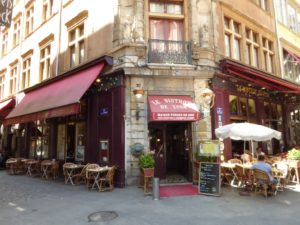
In the historic quarter of le vieux Lyon, there’s the gothic St Jean Cathedral, famous for its astronomical clock; the passageway Impasse Turquet where timber balconied houses date back to the 13th and 14th centuries; the Renaissance courtyards of Maison du Chamarie and Maison du Crible; and eventually to the two Gallo-Roman theatres at the Amphithéâtre des Trois Gaules, that stage performances ranging from dance, circus, outdoor cinema to rock concerts.
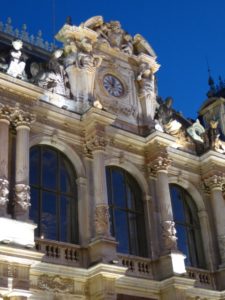
Lyon has some of the most impressive 19th century neoclassical buildings in France, such as the Palais de Justice, Palais de Bourse and along the quai Jean Gourmont bordering the Rhône.
The many large squares in the centre of the city make for very pleasant urban spaces.
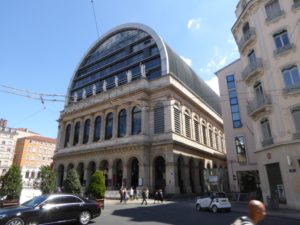
Don’t forget to check out the magnificent Opera de Lyon. This was re-built in 1993 by the French architect Jean Nouvel in 1993, who added a radical extension onto its roof—many regard it as a fine example of sympathetic contemporary architectural adaptation, although it remains somewhat controversial. Numerous events are staged throughout the year, such as opera, ballet and concerts as well as an important Dance Biennial.
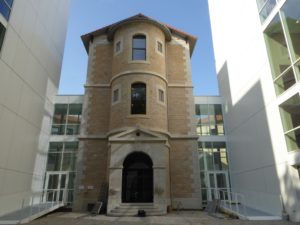
A major recent project was the transformation of a redundant prison complex, adjacent to the main railway station, into an exciting new inner-city university campus.
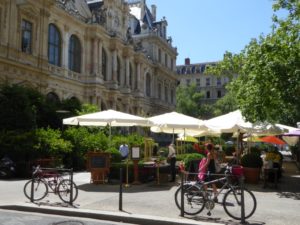
Exploring Lyon doesn’t only mean looking at its rich historic heritage.
Its unique location between the Saône and the Rhône, makes the confluence of these two rivers the hub of a vibrant urban area full of small cafes, restaurants, shops and enticing pedestrianised streets.
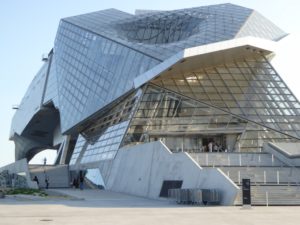
No visit to the city is complete until you’ve visited the new Musée des Confluences, a monumental, deconstructivist design of metal and glass, dedicated to natural science, anthropology and Earth Sciences, situated at the southernmost end of the Presqu’ile, where the Rhône and Saône rivers meet.
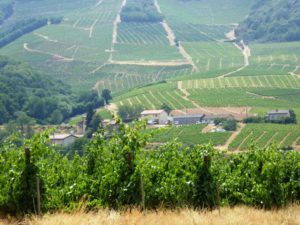
From Lyon you might also like to take a Beaujolais Gourmet Wine Tour that includes tastings and a visit to a 12th century village, or perhaps a Food Tasting Walking Tour where you can discover Lyon’s culinary scene with a local guide, visiting a number of the foodie hot-spots of the city. A number of companies such as Viator offer these excursions.
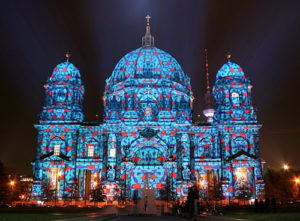
Lyon has several festivals and special events throughout the year. One of the most popular is the city’s Festival of Lights, a four day event culminating on or about 8th December, which commemorates the sparing of Lyon from the plague in 1643. Major buildings are floodlit or have special lighting effects on their facades, and people all over town place candles on their windowsills.
To explore all that Lyon has to offer, either on foot or using the extensive public transport network, it’s advisable to stay as central as possible. We stayed at the Hôtel Carlton Lyon – Mgallery, which is incredibly well-located at 4, rue Jussieu.
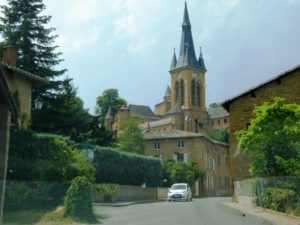
Easily accessible by rail and road, the many layers of Lyon make for a great city to discover, and is ideally situated for exploring some of the loveliest wine areas and villages in France.


Great information as we will be in Lyon early September. We had the pleasure of staying at your apartment in Paris a few years ago. We always appreciate the first hand knowledge of the places we wish to visit. Thank you. Dennis & Richard.
Hi Dennis and Richard,
How nice to hear from you! So delighted that you enjoyed the apartment, and we look forward to welcoming you on another visit, hopefully in the near future. Thanks for your comments about the Lyon info. We spent a couple of very interesting days exploring this great city, and plan on a return visit one day soon to see all the things we didn’t have time for. I’d love to know if there are any topics you’d like me to explore in the Blog–Paris and other destinations further afield. Do keep in touch! Cheers, Cheryl & Graham